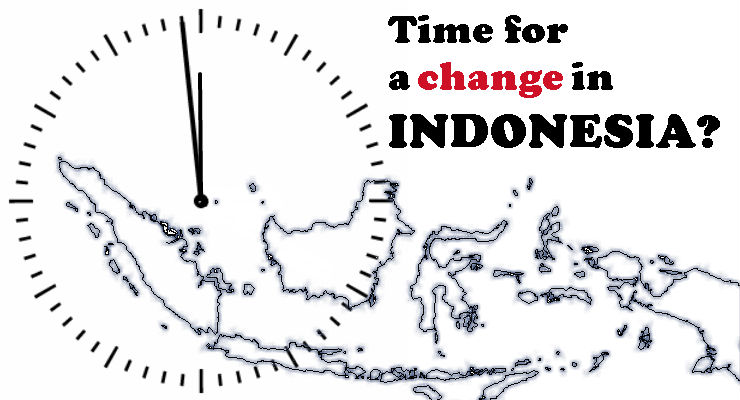
From Voice Of America
Two months ahead of the next Indonesian presidential election, signs of discontent are showing among the country’s youth and many are worried they may choose a growing option: non-voting.
Shortly after serving an almost two-year prison sentence for violating Indonesia’s blasphemy law, former Jakarta governor Basuki Tjahaja Purnama, widely known as Ahok, urged his supporters to vote in the Indonesian elections on April 17. “We need to vote for the political parties to erect the four pillars of the Indonesian state,” he wrote in a letter.
In an effort to quell disappointment by some of his supporters for the incumbent, President Joko Widodo, widely known as Jokowi, Ahok urged against golput — short for golongan putih, the Indonesian term for non-voting.
Golput can be categorized into active and passive non-voting, such as consciously not showing up to the polls, incorrectly casting the vote or punching the white space in the ballot, therefore disqualifying the vote.
“In the 2019 elections, the targeted turnout rate is 77.5 percent, which means that the golput trend isn’t rising,” Arief P.S., spokesman for Indonesia’s General Elections Commission (KPU), told VOA.
Historically, however, the rate of golput has risen. According to the findings by the organization The Partnership for Governance Reform and Association for Elections and Democracy (Perludem), 48.3 million voters abstained in the 2009 elections, rising to 58.9 million in the 2014 elections. The rate of golput rose from from 16 percent in 1999 to 30 percent in 2014—close to the predicted voting rate in this year’s elections.
Millennial votes
With the rise of the Indonesian Solidarity Party (PSI), whose campaign and brand revolve around tapping the millennial votes, young Indonesians have become a formidable voting bloc in this year’s elections.
“Whether they’re a big voting bloc or not, it’s hard to say since we don’t have the resources to make that data. But we can agree that millennials are a lot more critical and have better access,” Aqsa said. “I believe that golput will be an option for millennials.”
Experts believe that both the campaigns of Jokowi and his opponent, Prabowo Subianto, use pop culture references (Jokowi said “Winter is coming” from the TV show Game of Thrones a few months ago) and champion several policies, such as the nation’s high unemployment rate, that are believed to be targeted at young voters.
In an interview with Bloomberg, Subianto’s running mate, businessman Sandiaga Uno, said about 50 percent of millennials are pretty “disengaged” and “disenfranchised.”
Rivanlee Anandar, 25, a researcher at the Commission for Missing Persons and Victims of Violence, told VOA that he will come to the polls, but he will punch both ballots, therefore disqualifying his vote. “Why both? You can interpret it however you want, either I trust in both candidates or distrust them completely. It’s more the second option, especially on human rights issues,” he said.
Nabila Ernada, 22, expressed similar disappointment, but she told VOA that she will be voting in April. “I will vote because there’s an obligation. I don’t really believe that my vote is really making a difference towards the political scene in Indonesia,” she said before expressing her confusion over Indonesia’s “stagnant politics.”
Similar to Ernada, Moudy Alfiana, 23, will vote and she is less cagey about her reasons. “Many people believe that the candidates are the same, but if you look at their visions, there’s also differences,” she said, before adding that she does acknowledge that campaign promises are no more than just that—a promise. “Being surrounded by people who will abstain, I can understand where they’re coming from, though,” she said.
Old choice
Historically, Golput, which is not illegal, has always been an option in Indonesian politics, currently the third largest democracy in the world.
It is widely believed that the word golput entered the lexicon in 1971, when activists protested the elections in the New Order regime. The elections at that time weren’t democratic—Suharto, the authoritarian president, held the job from 1967 to 1998.
Similar to the Indonesian politics in the past, the discourse surrounding golput in 2019 has focused on the disillusionment for the two presidential candidates, Jokowi and the ex-military general Prabowo Subianto.
“Many things motivate voters to abstain. They may feel as if the elections won’t impact their lives or they disagree with the current political system, they may dislike the candidates or distrust the representative democratic system,” lawyer Alghiffari Aqsa and the former director at the Jakarta Legal Aid Institute, told VOA.
Aqsa also added that although people are more open to golput as an option, there is still stigma surrounding it.
“If we look at social media, there’s a lot of names that people like to call those who abstain, from bad citizens, criminals, pragmatists, egoists to edgy,” he said.
Leave a Reply